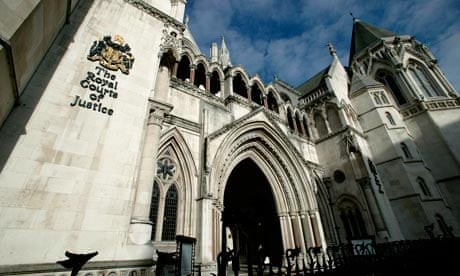A severely autistic epileptic teenager has won £28,250 damages from the Metropolitan police after officers pulled him out of a swimming pool and handcuffed him during a school trip.
The 19-year-old, identified in court as ZH, had jumped into the water at the baths in Acton, west London, while fully clothed in September 2008. The police response was "over-hasty and ill-informed", the high court judge, Sir Robert Nelson, ruled.
He accepted that officers may have been acting as they genuinely thought best, but said the restraint of ZH, who has a mental age of five and cannot communicate by speech, was nonetheless "wholly inappropriate".
The judge decided that lawyer for ZH had established his claim for trespass to the person, assault and battery and false imprisonment under the Disability Discrimination Act and the Human Rights Act.
By failing to consult his carers, the police failed to understand the potentially serious consequences of applying force and restraint to ZH, who suffered moderate post-traumatic stress disorder.
Nelson said: "The case highlights the need for there to be an awareness of the disability of autism within the public services. It is to be hoped that this sad case will help bring that about."
He refused permission to appeal, although counsel for the Met commissioner said the application would be pursued directly with the court of appeal.
In his ruling, the judge said the case was another example of the difficult role the police were often called upon to play.
"None of them were fully aware of the features of autism, what problems it presented and how it should best be dealt with in a situation such as occurred at the Acton swimming baths," he said.
"They were called to the scene by a misleading message about ZH's behaviour, and on arrival perceived the need to take control and be seen to be taking steps to deal with the situation.
"What was called for was for one officer to take charge and inform herself of the situation, as fully as the circumstances permitted, so as to be able to decide on the best course of action to take. That did not happen."
He said that, while it was clear the case against the police was established, he was equally clear that no one involved was at any time acting in an ill-intentioned way towards a disabled person.
After the judgment was given, the Met's counsel, Anne Studd, argued that its effect was to "lessen the overriding police duty to preserve life and limb".
"These are very difficult issues for the emergency services, including the police, to deal with and, in my submission, they should be given a margin in which they can act without their actions being found to be unlawful," she said.
The judge said police had to assess each situation as they found it on its merits and deal with it accordingly.
"There is no standard here as to what may happen in each case. It is inevitably a decision on its own facts, and exceptionally unusual facts they are," he added.
Lawyers for the youth said he became "fixated with the water as a result of his autism and was reluctant to leave the pool". Against the wishes of his trained carer, the pool staff called the police to remove him, it was said.
"When police officers attended they almost immediately took hold [of him], causing him to jump away from them and into the water. Officers then used high-level force to remove him from the pool."
The youth's father, who cannot be identified, said: "I hope this judgment means that disabled people can expect to receive more humane treatment from Metropolitan police officers than my son did.
"Sadly, this seems impossible while the commissioner is still trying to justify this ill-treatment and refusing to provide training or an apology."
ZH's solicitor, Tony Murphy, of the law firm Bhatt Murphy, added: "[Metropolitan Police commissioner] Mr Hogan-Howe must seize the opportunity presented by this landmark judgment to reform the way his officers treat people with disabilities.
"This disturbing case is not an isolated example. The commissioner must put an end to the widespread practice of using force as a first resort, including when officers are dealing with disabled children."
